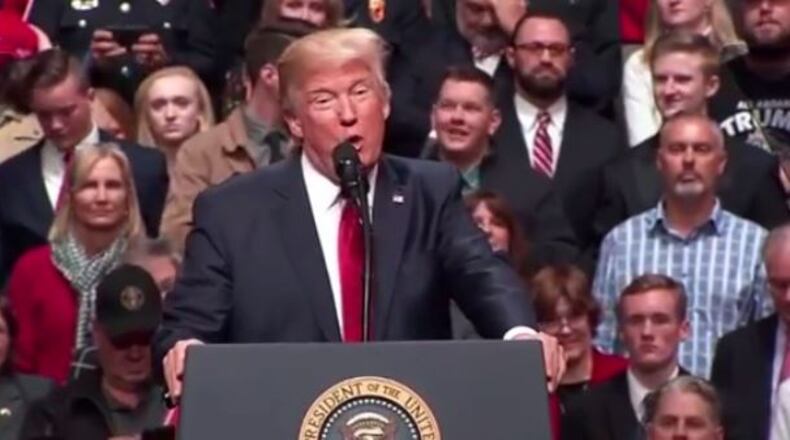Hours before it was to take effect, a federal judge in Hawaii issued a temporary restraining order against President Donald Trump's revised executive order on travel and refugee admissions to the United States, as Mr. Trump denounced the ruling, saying it makes the U.S. look "weak."
"We're going to fight this terrible ruling," the President said during a speech in Nashville, Tennessee, as he vowed to pursue an appeal.
"We're going to take our case as far as it needs to go, including all the way up to the Supreme Court," Mr. Trump added.
"We're going to keep our citizens safe," the President declared.
"You don't think was done by a judge for a political reason, do you?" Trump asked the crowd.
The court delay was an unwelcome repeat for the President of his initial effort to slow refugee and travel admissions from a group of majority-Muslim countries that had been deemed a possible source of terrorism.
Mr. Trump actually referred to it in his Wednesday night speech as a "watered down" version of his original order, which was stopped both by a federal judge in Washington State, and a three judge panel of the Ninth Circuit Court of Appeals.
After several weeks of work, the White House decided to drop the appeal on that first order, and replace with a new order, which had been tailored to get around some of the legal concerns about the initial executive order.
But federal judge Derrick Watson wasn't convinced.
"National security is unquestionably important to the public at large," Judge Watson wrote. "Plaintiffs and the public, on the other hand, have a vested interest in the 'free flow of travel, in avoiding separation of families, and in freedom from discrimination.'"
The lawsuit from Hawaii involves a Syrian man named Ismail Elshikh, who wants to make sure his mother-in-law from Syria can come to the United States to visit. Elshikh, his wife and five children are all U.S. citizens.
About the Author
The Latest
Featured



